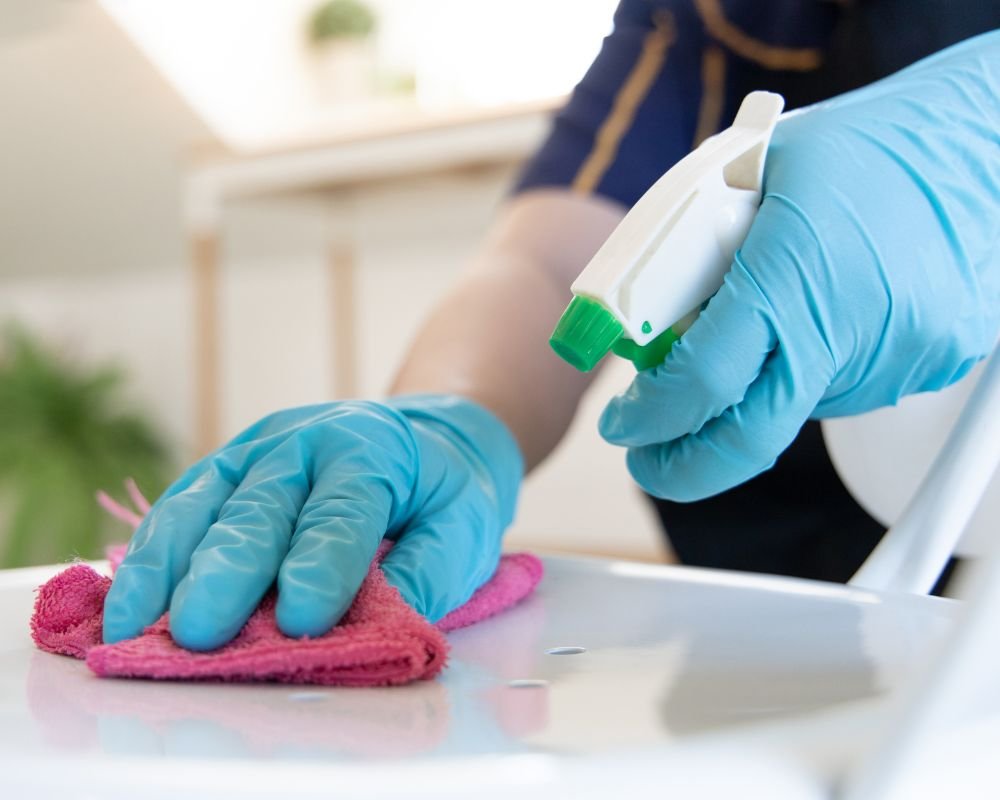It is not unusual for faith-based organizations, particularly churches, to rely on volunteers to keep their properties clean. But sometimes there just aren’t enough volunteers to do the work. Other times, facilities are just too large to rely exclusively on volunteer crews alone. Bringing in commercial cleaning services is the most obvious solution.
Under such a scenario, the question then becomes one of what the cleaning company should be doing. What will they clean and when? Will they be expected to handle deep cleaning? These are the sorts of things that should be spelled out in a commercial cleaning contract. Every contract is different, so there is no way for us to offer an iron-clad scenario common across every church facility.
Here are some of the typical things cleaning companies will do for churches:
1. Restroom Cleaning
At the top of the list is cleaning facility restrooms. And since it is not unusual for contracts to call for cleaning only once per week, restrooms would typically be addressed the evening before main services. Usually that means Saturday evening. Churches that hold midweek services often rely on volunteers or janitorial staff to spot-clean restrooms throughout the week.
As for churches with schools attached, school restrooms are likely to need nightly cleaning. Restrooms utilized exclusively by staff numbers could be addressed as-needed, possibly even by volunteers.
2. Cleaning the Sanctuary
The other big thing for weekly church cleaning is addressing the sanctuary. Again, this would happen the day or evening before main services. Sanctuary cleaning generally includes vacuuming carpets, dusting, and picking up any loose trash or debris. Cleaners may be asked to straighten chairs and redistribute hymnals as needed.
Sanctuary cleaning can be tricky in facilities with stages. Musical instruments, sound equipment, and sets can make stage cleaning more complicated than crews want to get into.
3. Nurseries and Sunday School Rooms
Next up are nurseries and Sunday school rooms. They all require a little extra care so as to prevent spreading germs. Cleaners also need to be more careful about the products they use. They try to avoid harsh chemicals whenever possible, yet they still need to pay close attention to hygiene and sanitizing.
Nursery and Sunday school room cleaning tends to be limited to floors, furniture, and high-touch surfaces. Cleaners do not get into dealing with children’s toys, books, etc. They don’t handle washing crib linens or blankets.
4. Lobbies, Atriums, Reception Areas, Etc.
Finally, we get to larger areas like lobbies, atriums, etc. In some of the bigger churches, the main lobby or atrium is a vast space that could include tables and chairs that encourage people to mingle before and after services. Other churches have dedicated fellowship halls for mingling and special events. Either way, these types of areas tend to attract dirt and trash because they are social areas.
Speaking of social areas, a recent trend in churches is to serve coffee and snacks before and after services. This adds an extra element when it comes to cleaning. However, a typical cleaning crew will not get into cleaning kitchen equipment or related spaces unless specifically asked to do so.
Plenty of Variation
The four things mentioned in this post are pretty typical for church cleaning contracts. However, differences in how faith-based communities do things leave plenty of room for variation between facilities. There may be things one facility needs that another does not. It is best for church leaders and commercial cleaning services to work out customized cleaning plans based on need. That is generally not a problem for experienced commercial cleaners.



